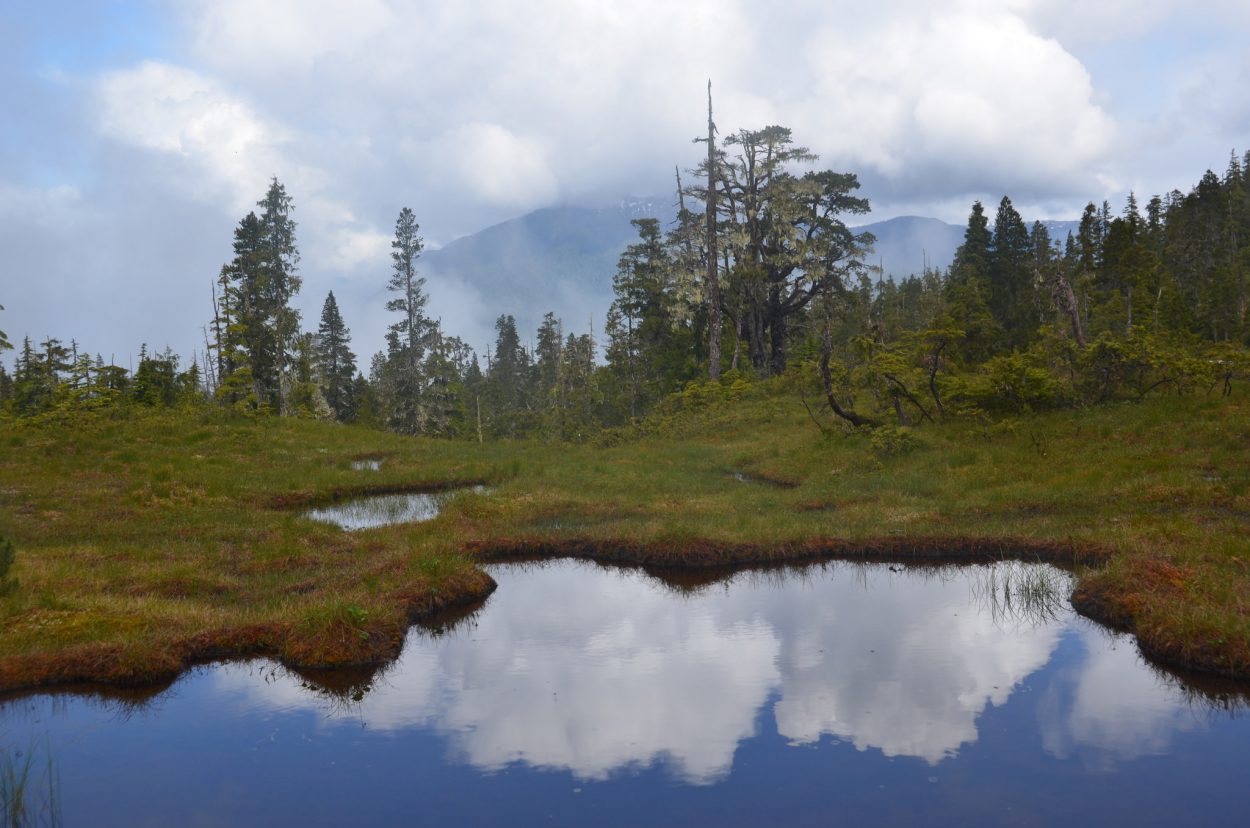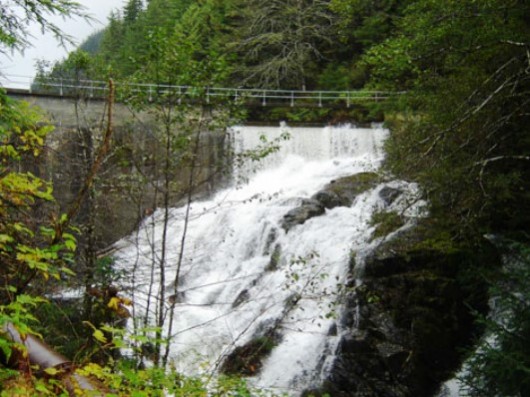
The Tongass National Forest near Wrangell, Alaska, 2016. (Creative Commons photo by Rob Bertholf)
The Biden administration announced Friday the start date of its formal process to reinstate the Roadless Rule which protects about 9 million acres of Tongass National Forest.
“Restoring the Tongass’ roadless protections supports the advancement of economic, ecologic and cultural sustainability in Southeast Alaska in a manner that is guided by local voices,” U.S. Agriculture Secretary Tom Vilsack said in a statement.
Successive Alaska governors have opposed the Roadless Rule since the Clinton administration put it in place in 2001. It’s been an on-again, off-again situation since then, with legal battles and politics coming into play.
The most recent whip-saw came last year when the Trump administration exempted the Tongass from the rule.
Now, Vilsack, who oversees the Forest Service, is again calling a do-over. He says a two-month comment period will be its first step to reinstate the Roadless Rule. And it’s a similar announcement to one made earlier this year that the Trump-era rule would be reversed.
“I don’t know how many times Vilsack can announce the same thing and have it sound like news,” said Juneau attorney Jim Clark who has been coordinating a legal effort with some local governments and resource industries to preserve the Tongass exemption from the Roadless Rule.
He says the rhetoric around the rule’s protections of ancient forests is overblown.
“All this new exemption would do is open up 168,000 acres to timber harvest that wasn’t previously previously open,” he said Friday. “You wouldn’t know that from listening to the news, you think that all of the Tongass is going to be subject to clear cutting.”
And it’s true that while the rule change could affect more than 9 million acres, less than 170,000 acres of that would be old growth timber that could be logged under the current exemption.
Alaska state lawsuit rejected by federal Court of Appeals
Gov. Mike Dunleavy directed the state to join a lawsuit filed by resource industries. But the Court of Appeals dismissed the lawsuit earlier this week saying last year’s Roadless exemption is still in force and the case was moot. But the governor’s office says the fight isn’t over.
“I would anticipate a very big vigorous response to the the efforts to control Alaska out of Washington, D.C.,” said the governor’s chief of staff Randy Ruaro, who hails from the former logging boomtown of Ketchikan. He told CoastAlaska on Friday that the Biden administration’s freeze on old growth timber sales ignores laws on the books that direct the Forest Service to make timber available to industry.
“We dispute the discretion of the Secretary to arbitrarily decide from Washington, D.C., to not follow those federal statutes and impose the Roadless Rule on the Tongass,” Ruaro added.
But opinion polls and the public record from hearings show healthy support for the Roadless Rule both in Alaska and Outside.
In Southeast, it has defenders from growing non-extractive industries like commercial fishing and tourism. And tribes whose traditional homelands are in what’s now Tongass National Forest also railed against the Trump administration’s rollback both at hearings and in court filings.
Commercial logging of Tongass impacts subsistence
That’s because the legacy of clear-cutting and other development conflicted with rural residents’ hunting and fishing traditions.
Don Hernandez chairs the Regional Advisory Council on federal subsistence. It spent hours taking testimony over Roadless.
“It had just become pretty obvious over a long period of time that the areas of the Tongass that were most significantly impacted by past logging, were all suffering harms to subsistence uses,” he said from his home on Point Baker on the northern edge of Prince of Wales Island.
Hernandez is a commercial fisherman living on the Southeast Alaska island that’s almost completely blanketed by federal forestland. He says the council heard loud and clear that people were worried about more old growth logging.
“And to expand that into other areas of the Tongass that people have come to rely on to meet their subsistence needs was just not going to be acceptable,” Hernandez said.
To federal policymakers, the Tongass is seen less from a lens of conserving hunting and fishing grounds and more as a bulwark against climate change.
Tongass National Forest’s value as a carbon sink
The Pew Charitable Trusts’ Ken Rait, who worked on developing the Roadless Rule under the Clinton administration in the 1990s, says there’s a recognition by the Biden administration that forests need to be kept intact to sequester carbon.
“And you know, there’s nowhere in the U.S. where this is more important than the Tongass National Forest,” Rait said from Portland, Oregon. “And so the decision is the right one for the Tongass, but it’s also the right one for the nation as a whole.”
The resource extraction industry and many of Alaska’s elected leaders complain that red tape will further lock up federal lands to energy and mining.
But Rait says there are safeguards in the rule. The Forest Service can — and does — issue waivers for projects in the public interest. More than two dozen to date have been grated, he says.
“The view that this is a blanket rule that will stop any development whatsoever from occurring on the Tongass just has not been borne out by history of this issue,” Rait said.
How exactly the Biden administration plans to reverse the Trump administration policy still isn’t clear, says Clark, who served as chief of staff to former Governor Frank Murkowski, another strident Roadless Rule critic.
“It’s just a situation where we have to wait and see what the administration is actually doing,” he said.
November 23 is when the Biden administration rolls out its plan for bringing back the Roadless Rule. If the last go-around is any indication it’ll be a drawn out affair as it took more than two years to exempt the Tongass from the rule.
During those hearings, the federal government says more than 95% of people nationwide supported keeping the Roadless Rule in place.
The Trump administration overturned it anyway.







